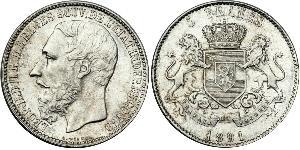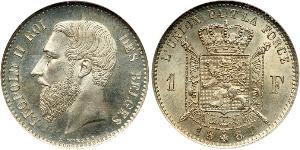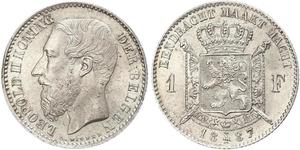Leopold II of the Belgium
The legacy of Leopold II of Belgium is complex and controversial, encompassing both significant achievements and profound controversies. Here are some key aspects of his legacy:
Colonial Expansion: Leopold II's most controversial legacy is his personal rule over the Congo Free State (later known as the Belgian Congo), a territory in Central Africa that he acquired through his private ownership rather than as a colony of Belgium. Leopold's administration of the Congo was marked by exploitation, forced labor, and human rights abuses, including widespread violence against the indigenous population. His pursuit of profit from rubber and ivory extraction led to the deaths of millions of Congolese people and sparked international condemnation.
Colonial Infrastructure: Despite the atrocities committed under his rule, Leopold II oversaw the construction of infrastructure projects in the Congo, including railways, roads, and buildings. While these developments contributed to economic exploitation, they also laid the groundwork for future development in the region.
Domestic Modernization: In Belgium, Leopold II promoted industrialization, urbanization, and cultural development. He supported public works projects, such as the expansion of Brussels and the construction of prestigious buildings, parks, and monuments. He also played a role in the development of Belgium's colonial and trade networks, contributing to the country's economic growth.
Legacy of Wealth: Leopold II amassed a significant personal fortune from his exploitation of the Congo's resources, making him one of the wealthiest individuals of his time. His wealth funded philanthropic endeavors, including the construction of public buildings, museums, and cultural institutions in Belgium. However, some critics argue that this wealth was tainted by the suffering of the Congolese people.
End of Personal Rule: Leopold II's rule over the Congo came to an end in 1908 following international pressure and public outrage over the atrocities committed in the colony. The Belgian government annexed the Congo, bringing it under state control and instituting reforms to address some of the worst abuses.
Historical Reassessment: Leopold II's legacy remains a subject of debate and historical reassessment. While some view him as a visionary modernizer who contributed to Belgium's prosperity, others condemn him as a brutal colonial oppressor responsible for immense human suffering. Efforts to acknowledge and address the crimes committed during his reign continue in both Belgium and the Democratic Republic of the Congo.
You may be interested in following coins
2025-05-23
-
New coins
New coins from
Save seller - jvp-munten
.
One of them is
One of them is
Netherlands - 1 Cent 1878 - Willem III, Nice Quality
2025-05-27
- New coin is added to 1 Franc Belgium Silver Leopold II of Belgium(1835 - 1909)
1 Franc Belgium Silver Leopold II of Belgium(1835 - 1909)
group has 12 coins / 10 prices
⇑
Belgien, Königreich. Leopold II. 1865-1909. Franc 1887. Flämische Legende. K.M. 29.1. Vorzüglich - Stempelglanz








